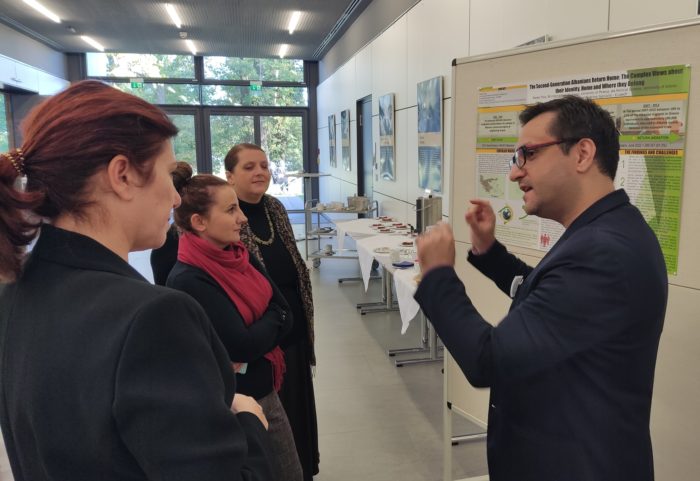Bledar Feta, Research Associate of ELIAMEP’s South-East Europe Programme and International Relations Expert, won the first prize for the best poster presentation at the 60th International Academic Week, organized by the Southeast Europe Association (Südosteuropa-Gesellschaft e.V.) and the Academy for Civic Education in Tutzing, Germany. In this 5-days event, more than 30 researchers and academics were gathered to discuss one of the most challenging topics, that of the “return migration” in Southeastern Europe.
Bledar Feta presented the findings of an empirical research, designed to evaluate the views and the perceptions of second-generation Albanians (children of Albanian immigrants born or arrived in Greece at an early age), who returned from Greece to their parental homeland, during the debt crisis.
According to the findings of the research, the “second-generation returnees”, who grew up with a strong Greek identity, moved to Albania mainly for economic reasons and at their parents’ request. Most of them discovered that living in Albania long-term, has been a challenging experience for several reasons. For most of the returnees all these challenges provoked a new “reverse” transnational links back to Greece, while some others chose to re-emigrate in other EU countries, like Germany, France, Belgium and the United Kingdom.
The fieldwork also revealed that many of the second-generation Albanians are disappointed by the way both Greece and Albania have been treating them. In fact, they consider themselves as the “invisible generation” since in Greece they are seen as Albanians, but in Albania as Greeks or “fake Albanians”; a situation that makes them feel like people with no homeland.




